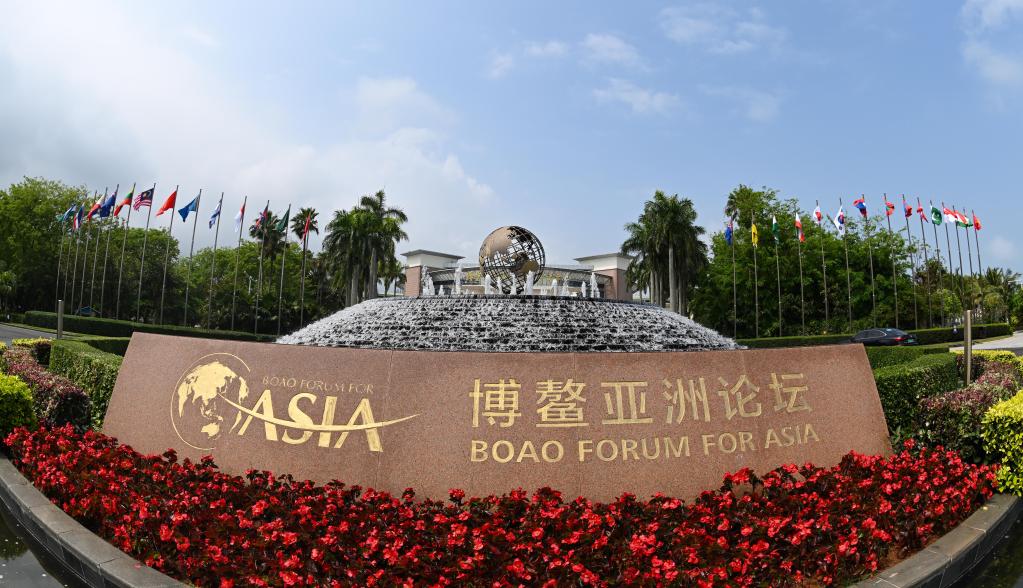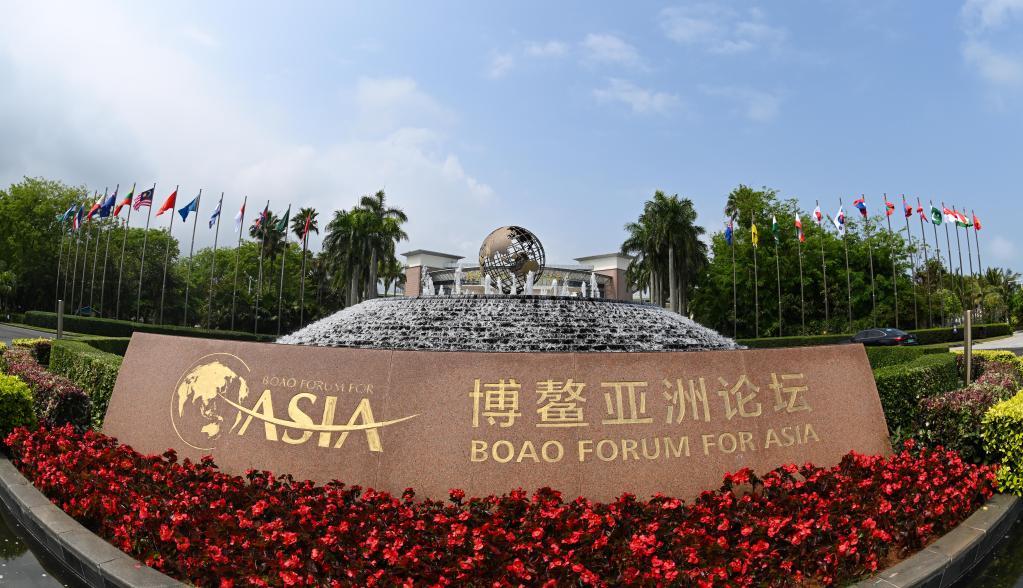
Photo taken on April 19, 2022, shows the Boao Forum for Asia (BFA) International Conference Center in Boao, south China's Hainan Province. (Xinhua/Yang Guanyu)
BOAO, Hainan, April 23 (Xinhua) -- This year, The Boao Forum for Asia (BFA) focuses more on green and sustainable growth as the world is reeling from the COVID-19 pandemic and global climate change.
During the three-day event in Boao, a coastal town in south China's Hainan Province, about a quarter of the panel discussion topics covered green topics ranging from carbon neutrality and hydrogen to integrated energy development and building ESG (environmental, social, governance) for sustainable growth.
GREEN GROWTH
"Going through this pandemic, the world is more than ever aware of the importance of achieving green recovery and sustainable development," said BFA Secretary-General Li Baodong.
A report released during the forum, titled "Sustainable Development: Asia and the World -- Asia in Action towards Green Transition," offers nine action suggestions on Asia's green transition, including building a green-growth model and fostering comprehensive green governance.
Li said climate change is a considerable risk for the whole world, and shaping a green and low-carbon development model is a primary task facing all countries in achieving sustainable development. He added it requires extensive participation and joint actions of the whole world.
Promoting energy transformation and achieving green development has become the consensus of the international community. More than 130 countries and regions have proposed zero-carbon or carbon-neutral targets to address global climate change.
China has announced its ambitious targets of peaking carbon dioxide emissions before 2030 and achieving carbon neutrality before 2060. The country has promoted the comprehensive green economic and social transformation and built the world's largest carbon market and clean power generation system to reach this goal. A green and low-carbon lifestyle also has won widespread public support.
As a developing country, China has achieved remarkable results in its carbon peaking and neutrality efforts, said Li Bo, IMF deputy managing director, during the forum.
GREENER EVENT, GREENER HOST
Organizers said the annual event has become greener with green products, green transportation services, and green energy.
The coffee for event participants is a zero-carbon product, and new-energy vehicles offered transportation services. All the event venues were powered by green electricity.
The green event is an epitome of the green development in Hainan, which is building itself into a free trade port with global influence and a national pilot zone for ecological civilization.
In Jiangdong New Area in Haikou, the provincial capital, a low-carbon city of the future is rising with solar panels installed on top of buildings, windows able to generate electricity, and pipe systems collecting rainwater for irrigation.
"The development and construction of our industrial park are guided by the green and low-carbon concept," said Gong Xuanyuan, an official with the Jiangdong New Area Administration Bureau. The new area has set the target of achieving carbon neutrality by 2030.
Clean energy now accounts for 70 percent of installed power generating capacity in Hainan. In the first quarter of this year, its clean-energy consumption helped reduce carbon dioxide emissions by over 3 million tonnes.
In China's new-energy vehicle (NEV) boom, more green vehicles are on the roads in Hainan. Hainan will ban oil-fueled automobile sales throughout the province by 2030.




 A single purchase
A single purchase









